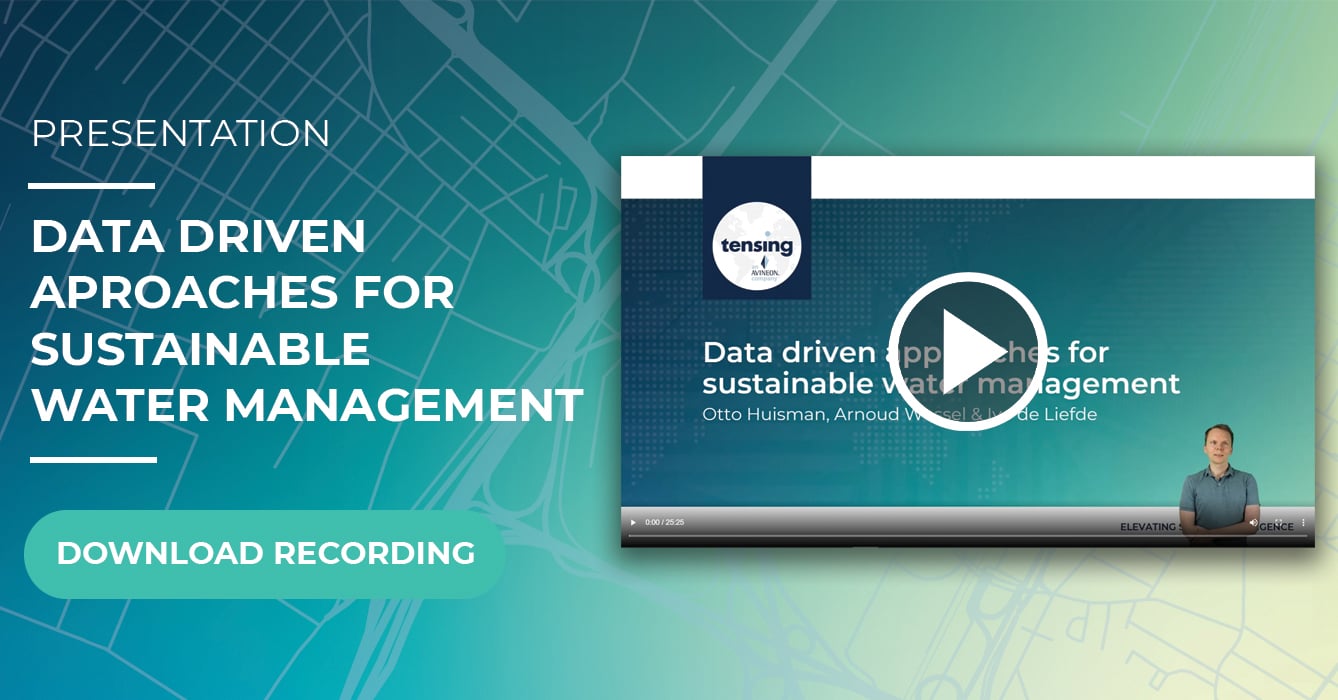Data driven approaches for sustainable water management
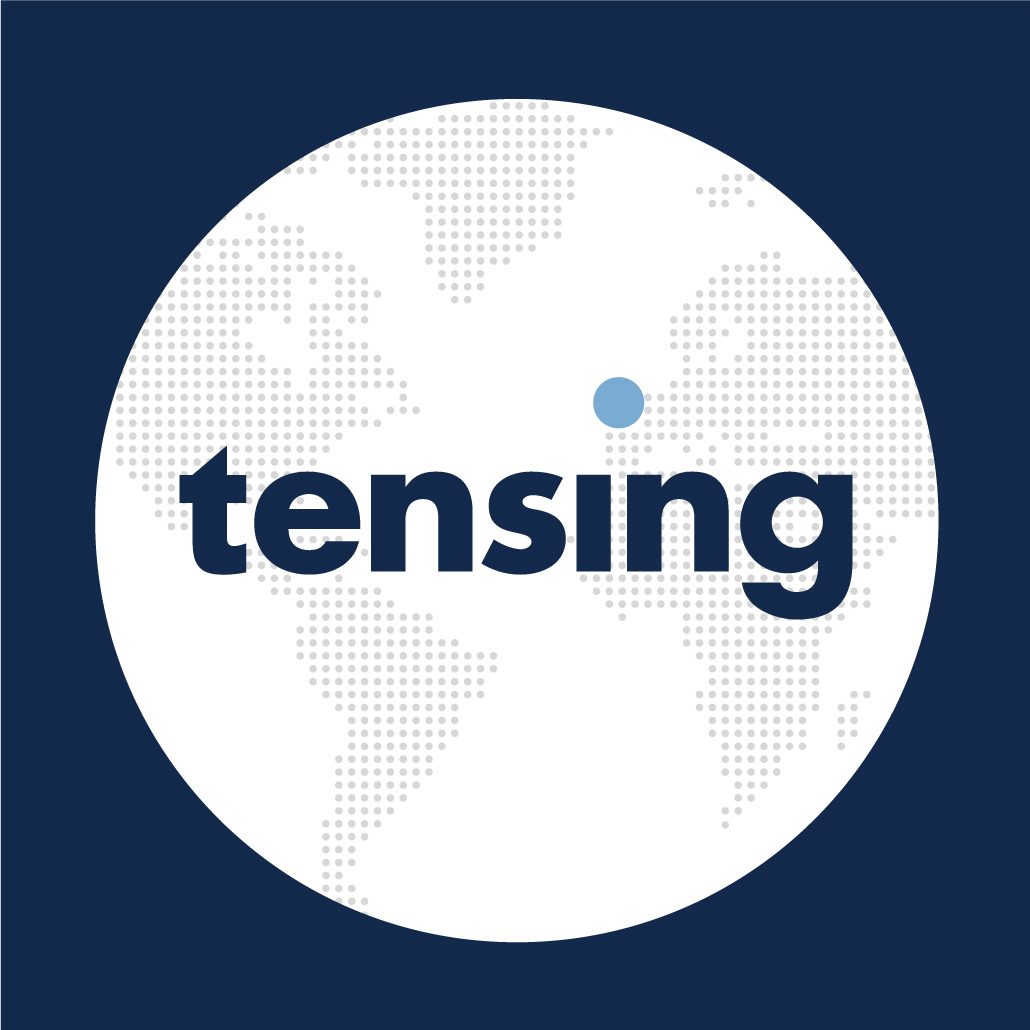
Tensing
In the 21st century, producing reliable and consistent drinking water is a challenge. Climate change is causing increasingly extreme weather with both more drought and more heavy rainfall. An aging population is leading to higher concentrations of residual medications in watersheds. In addition, industry and agriculture use chemicals and fertilizers that pollute ground and surface water.
Evides - a Dutch water supply company with more than 2.5 million customers - is applying data-driven methods to address these challenges. At the Geospatial World Forum 2021, Tensing and Evides presented how data science is used to create concrete solutions. Want to see the entire presentation? Watch the video here.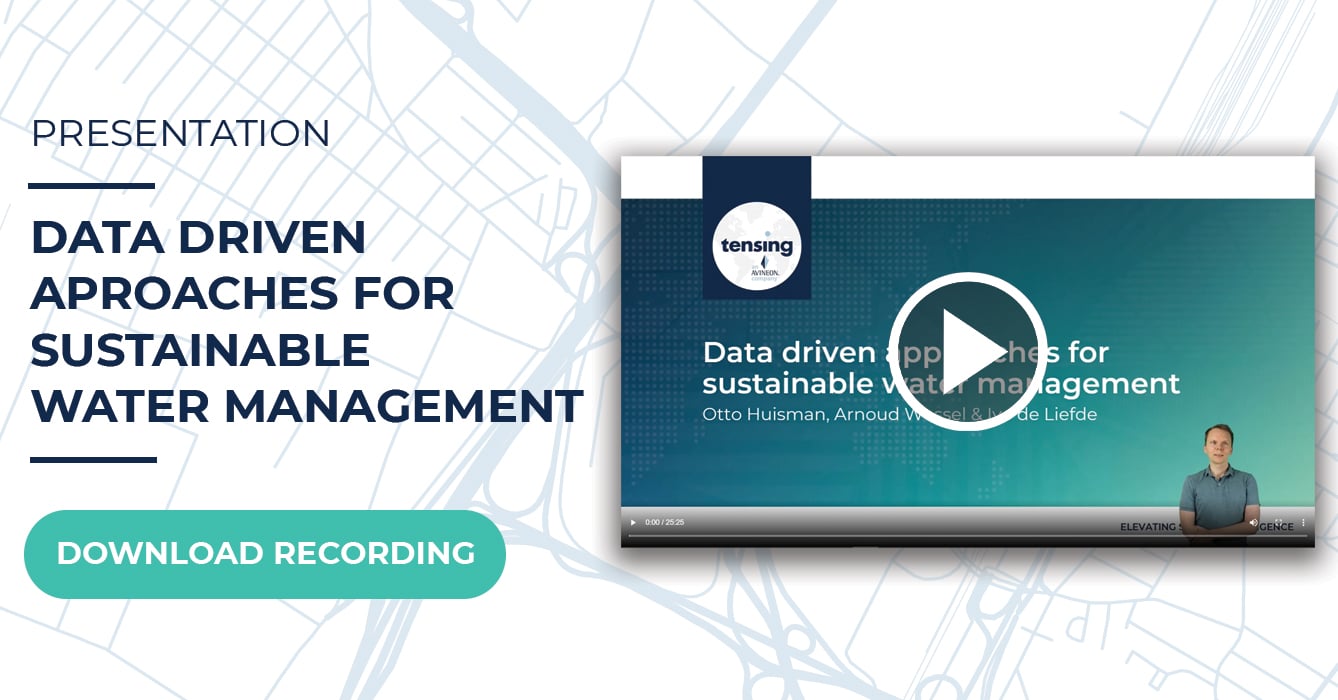
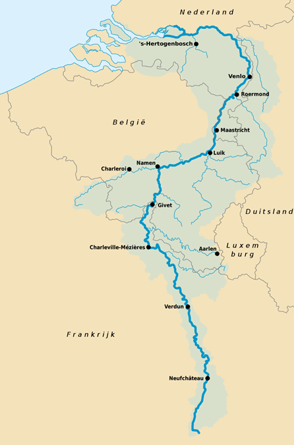 WHERE DOES OUR DRINKING WATER COME FROM?
WHERE DOES OUR DRINKING WATER COME FROM?
Evides' main water source is the Maas River, which accounts for 80 percent of their annual water intake. Surface water filtered in the dunes (16 percent) and deep groundwater (4 percent) provide the remaining 20 percent. You could say that the water that comes out of the tap has come a long way.
Originally, our drinking water comes from the Maas in France and flows through Belgium and the Netherlands to Evides in the Biesbosch. That is where the water is collected by the brand new Bergsche Maas intake station. Over a period of 5 months it then flows through 3 successive reservoirs, after which the purification plant converts it into clean drinking water. A pipeline network of over 14,000 kilometers distributes the drinking water to Evides' customers.
Data science as a solution
As explained at the beginning of this blog, climate change, aging populations and water pollution make it challenging to produce clean drinking water. To collaborate with Evides to deal with these problems for drinking water in the short and long term, we have developed three solutions.
In the blog "Data science and geo data, how far along is your organization?" you can read what geographic data can mean for data science solutions.
1. Trend analysis modules
In the Biesbosch, raw data is collected by a combination of sensors (streaming data) and hand samples that are analyzed by the water laboratory Aqualab South. A trend analysis is applied to this dataset to monitor the concentration of the water. If the concentrations rise too fast, the water intake can be stopped immediately. By sharing the trend analysis modules with partners, an important spatial dimension is added to these applications.
2. Scenario Planning Tool
A second solution is the scenario planning instrument. With this tool Evides predicts the effect that an interruption of the intake has on the substance concentration in the reservoirs. Based on variables such as the expected weather conditions and the expected water demand, a simulation can be performed. The simulation calculates what happens if the water intake is stopped for a certain period of time. By calculating different scenarios and comparing the results, the consequences of an action are known in advance.
3. Biological Monitoring
The third solution presented at the GWF uses biological monitoring. By continuously monitoring and analyzing the behavior of animals living in the water - such as mussels and water fleas - water contamination can be detected and intake automatically stopped.
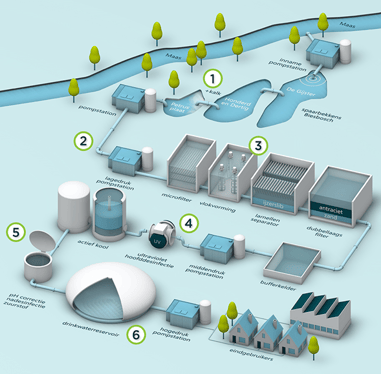
Treatment process of Evides
The next steps
Untargeted screening is a technique that will receive a lot of attention within Evides in the coming months. Where all the sensors and laboratory samples focus on very specific substances, it can be valuable to look at all the substances that occur in the water. Some of these are well known, while others may not even have a name yet. The goal is to automatically detect all substances based on their molecular structure, analyze their evolution over time, and see if there are any potentially dangerous substances among them.
Are you curious about the entire presentation Tensing and Evides gave together at the Geospatial World Forum 2021? Watch the video here.



.png)
